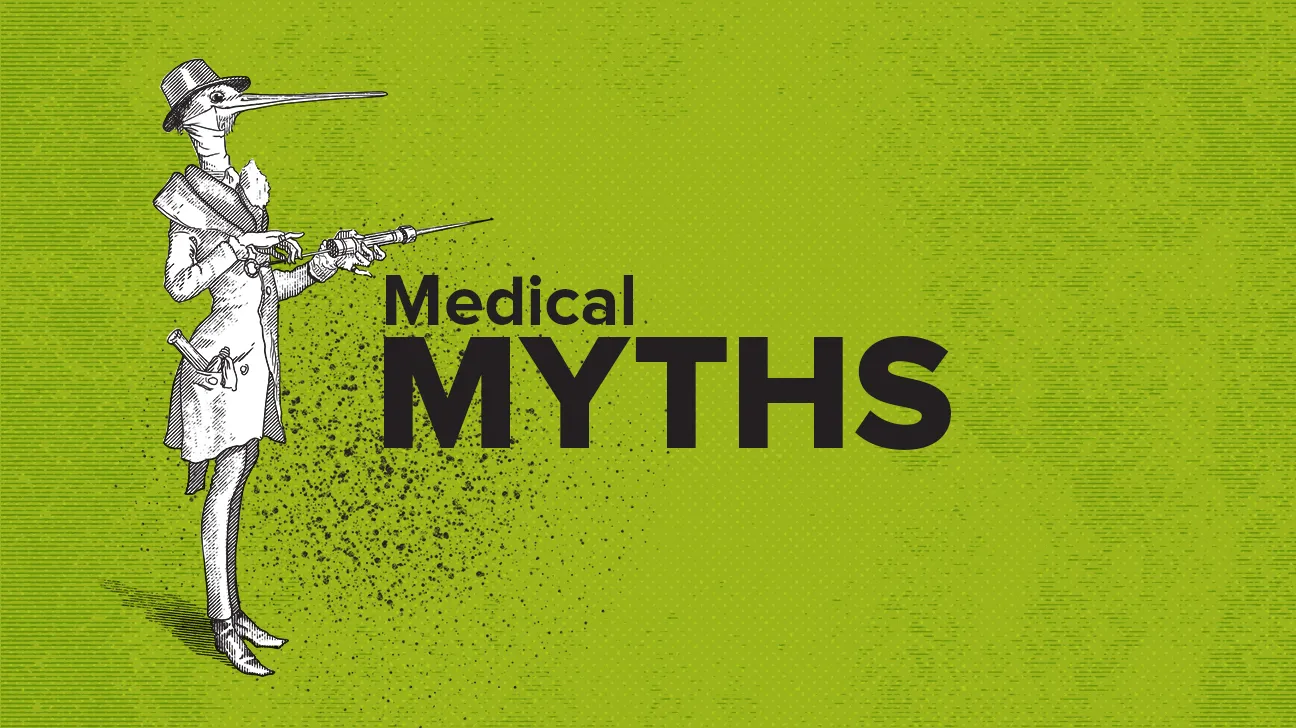
ISLAMABAD, SEP 22 (ABC): In the latest installment of our Medical Myths series, we tackle myths associated with aging. Because aging is inevitable and, for some people, frightening, it is no surprise that myths abound.
Over the last 200 years, life expectancy at birth has doubled again. As animals go, humans perform well in longevity.
According to the World Health Organization (WHO), “Between 2000 and 2050, the proportion of the world’s population over 60 years will double from about 11% to 22%Trusted Source.”
With these facts in mind, dispelling the many myths associated with aging seems more pressing than at any point in our evolutionary history. In this article, we will tackle myths associated with exercise, cognitive ability, sex, and more.
- Physical deterioration is inevitable
This is not entirely untrue. As we age, our body does experience wear and tear from decades of use. However, physical deterioration does not have to be complete, and people can often slow it down.
As the WHO explain, “Increased physical activity and improving diet can effectively tackle many of the problems frequently associated with old age.” These problems include reduced strength, increased body fat, high blood pressure, and reduced bone density.
Some research suggests that merely expecting physical deterioration increases the likelihood that someone will physically deteriorate.
In one studyTrusted Source, scientists surveyed 148 older adults about their aging, lifestyles, and general health expectations.
They concluded that expectations regarding aging “play an important role in the adoption of physically active lifestyles in older adults and may influence health outcomes, such as physical function.”
So, although some deterioration is likely, managing expectations will help individuals make better life choices to maintain physical health and fitness later in life.
An older study investigated how perceptions of aging influenced an individual’s likelihood of seeking medical attention. The authors of the study, which included data from 429 older adultsTrusted Source, concluded:
“[H]aving low expectations regarding aging was independently associated with not believing it important to seek health care.”
Another studyTrusted Source looked at individual attitudes to aging during late middle-age and how they might influence their overall lifespan. The authors concluded that “older individuals with more positive self-perceptions of aging, measured up to 23 years earlier, lived 7.5 years longer than those with less positive self-perceptions of aging.”
In short, keeping active, eating right, and maintaining a positive outlook can often slow the physical deterioration associated with older age.
- Older adults should not exercise
From the previous section, it is clear that this is a myth. According to an older article in Neuropsychobiology, keeping active can boost muscle strength, reduce fat, and improve mental health.
Some people think that, once they reach a certain age, there is no point in exercising, as they believe that it will provide no benefit. This is another myth. In one studyTrusted Source, researchers put 142 adults aged 60–80 through a 42-week weight-lifting regime.
The scientists found that the course increased “dynamic muscle strength, muscle size, and functional capacity.”
There is also good evidence that regular exercise can reduce the risk of developing Alzheimer’s disease and other forms of dementia. A study, which involved 1,740 older adults, found that regular exercise was “associated with a delay in onset of dementia and Alzheimer’s disease.”
However, people should consult their doctor before embarking on a new exercise regime if they have a medical condition. For example, the National Health Service (NHS) in the United Kingdom indicate that people with certain conditions associated with age, such as osteoporosis, should avoid high impact exercise.
However, the vast majority of older adults can indulge in some form of physical activity.
- Older adults need less (or more) sleep
Some people believe that older adults need more sleep than younger adults, perhaps because of the stereotype that older people enjoy a nap. Others say that older adults need less sleep, which might stem from the stereotype that older adults rise early in the morning.
These myths are relatively difficult to unpick because there are many factors involved. It is undoubtedly true that older adults have more difficulty getting to sleep and that their sleep tends to be more fragmentedTrusted Source.
This might help explain why some older adults need to nap in the day. As the human body changes with age, it can disrupt the circadian (daily) rhythms.
This, in turn, can impact sleep. The relationship is multifaceted, too: if a person’s circadian rhythms become disrupted, it can influence other aspects of their physiology, such as hormone levels, which might also impact their sleep.
Aside from circadian disruptions, certain diseases that occur more commonly in older adults, such as osteoarthritis and osteoporosis, can cause discomfort, which might adversely influence an individual’s ability to get to sleep or stay asleep.
Similarly, some conditions cause shortness of breath, including chronic obstructive pulmonary disease (COPD) and congestive heart failure; this can also make sleeping more challenging.
According to an older articleTrusted Source, certain medications, including beta-blockers, bronchodilators, corticosteroids, decongestants, and diuretics, can also interfere with sleep. Older adults are more likely to be taking these types of medication, sometimes together.
The Centers for Disease Control and Prevention(CDC)Trusted Source state that people aged 61–64 need 7–9 hours, and people aged 65 or older need 7–8 hours of sleep each night. It just might be more difficult for them to get that all-important shut-eye.
As a silver lining, some research suggests that older adults can handle sleep deprivation better than young adults. A study in the Journal of Sleep ResearchTrusted Source found that older adults scored better following a sleep deprivation intervention than younger adults in a range of measures, including negative affect, depression, confusion, tension, anger, fatigue, and irritability.
- Only women get osteoporosis
Osteoporosis is a condition where bones gradually become weaker. Some people believe that it only affects women. This is not true; it can affect either sex and people of any age. However, osteoporosis is indeed much more common in older people, white people, and females.
According to an overview articleTrusted Source, the International Osteoporosis Foundation estimate that globally, around 1 in 3 women over 50 have osteoporosis, and about 1 in 5 men will experience a bone fracture related to osteoporosis in their lifetime.
Another related myth is that osteoporosis is inevitable for women as they age. As the figures above attest, two-thirds of women over 50 do not have osteoporosis. To minimize risks, the National Institute on AgingTrusted Source advise people to eat foods rich in calcium and vitamin D and exercise regularly.
- As you age, your brain slows
The term cognitive decline refers to a gradual decrease in mental functioning with age, but before we tackle the facts of the matter, we dismiss a couple of associated myths:
Dementia is inevitable as you age
According to the WHO, the risk of developing dementia increases with age, but it does not affect all older adults. Worldwide, an estimated 5–8%Trusted Source of people over 60 have dementia. That means that 92%–95% of people aged 60 or older do not have dementia.
In the United States, an estimated 13.9%Trusted Source of people over 71 have dementia, meaning that 86.1% of people over 71 do not have dementia.
Cognitive decline leads to dementia
Contrary to popular opinion, cognitive decline does not necessarily signal the start of dementia.
People who go on to develop dementia tend to experience cognitive decline first. However, not everyone who experiences cognitive decline will develop dementia.
One older studyTrusted Source estimated that 22.2% of people in the U.S. aged 71 or older experience cognitive decline. Of these, each year, 11.7%–20% develop dementia.
Cognitive decline is inevitable
As the above statistics show, cognitive decline is not inevitable, regardless of the long-held myth that older adults experience a mental slowing down. And, importantly, there are ways to reduce the risk.
In 2015, the Alzheimer’s Association evaluated the evidence of modifiable risk factors for both dementia and cognitive decline. Their reportTrusted Source, presented to the World Dementia Council, explains that “there is sufficient evidence to support the link between several modifiable risk factors and a reduced risk for cognitive decline.”
They identified that maintaining regular physical activity and managing classic cardiovascular risk factors, such as diabetes, obesity, smoking, and high blood pressure were strongly associated with a reduced risk of cognitive decline.
They also found good evidence that a healthful diet and lifelong learning or cognitive training also reduce the risk of cognitive decline.
- There’s no point giving up smoking now
Whether this is a genuine myth or merely an excuse, some older adults say that there is no point in giving up smoking at “their age.” This is not true. As the NHS clearly explain:
“No matter how long you have smoked for and no matter how many cigarettes you smoke a day, your health will start to improve as soon as you quit. Some health benefits are immediate, some are longer-term, but what matters is that it’s never too late.”
- Sex is rare or impossible as you age
Some people believe that older adults lose their ability to enjoy sex and that their sexual organs become unfit for purpose. This, thankfully, is a myth.
It is true that the risk of erectile dysfunction (ED) and vaginal dryness increases as people age, but for most individuals, these are not insurmountable problems.
Sildenafil (Viagra) and lubricants or hormone creams can work wonders in many cases. Before taking Viagra, though, it is essential to speak with a doctor, as it is not suitable for everyone.
An article in the International Journal of Clinical PracticeTrusted Source indicates that around 0.4% of men aged 18–29 experience ED, compared with 11.5% of men aged 60–69. However, flipping that statistic on its head makes it much less daunting — almost 9 out of 10 men in their 60s do not have ED.
Intercourse between older people may be less fast and furious, but that is not necessarily a bad thing. As one author writes, “Growing old does not necessarily discontinue a healthy sexual life, but it does call for redefining its expression.”
There are certain benefits, too. For instance, a male’s penis often becomes less sensitive, helping them maintain an erection longer.
It is true that as some people grow older, they do not have the same sexual desire or drive as when they were young, but this is by no means the case for everyone.
To end this section on a high, below is a quote from a survey study that involved 158 older adults. Although the participants reported that they were having less sex than a decade earlier, the authors write:
“A remarkably robust sex life was evidenced by both the men and the women, even until advanced old age.”
The takehome
Overall, most of the myths surrounding age seem to center on inevitability. People believe that it is inevitable that they will gradually crumble into dust as their lives become increasingly unbearable, boring, passionless, and painful.
Although certain aspects of health might decline with age, none of the above is inevitable for everyone. As we have discovered, a positive psychological outlook on aging can benefit the physical aspects of aging.


























